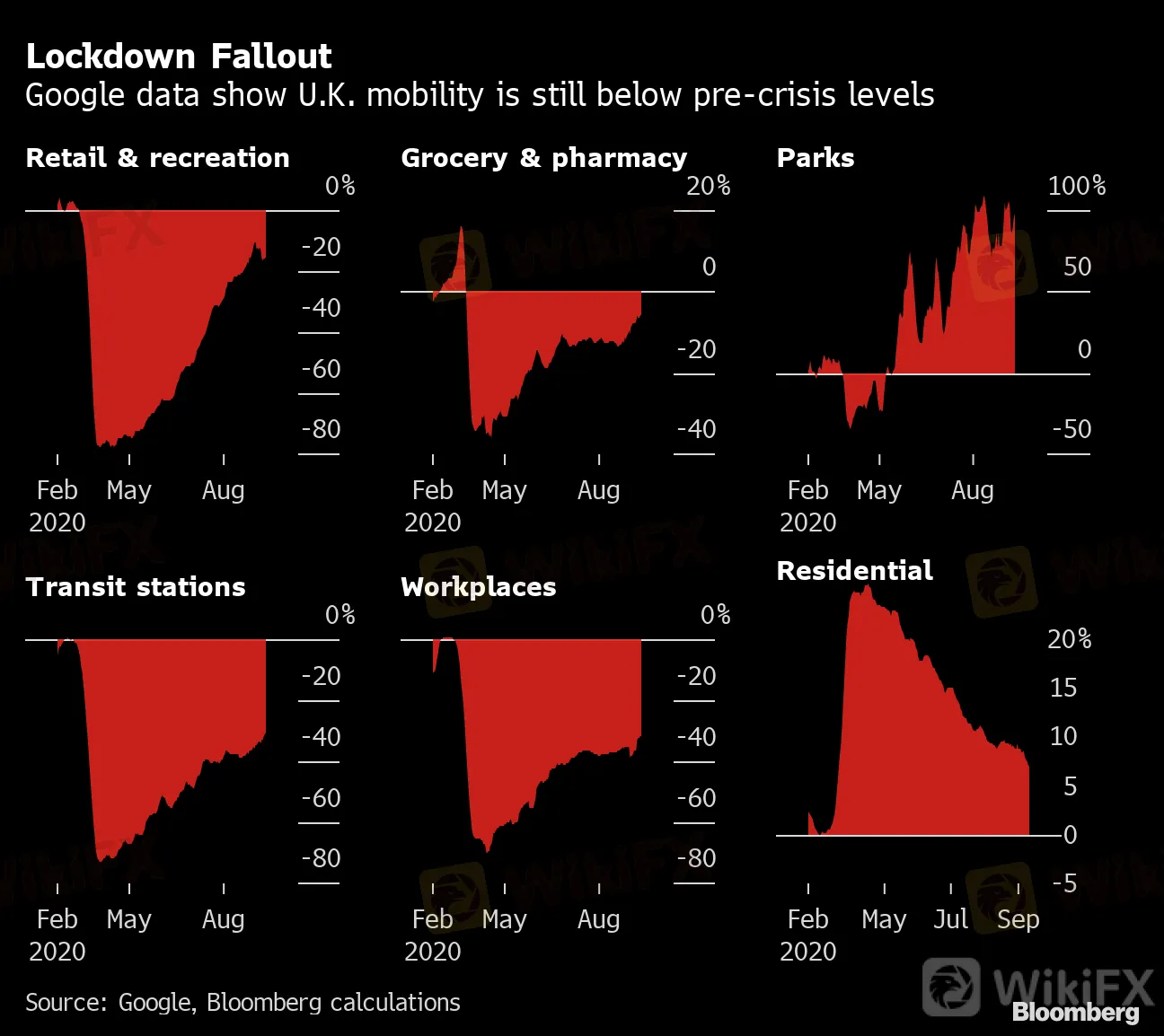简体中文
繁體中文
English
Pусский
日本語
ภาษาไทย
Tiếng Việt
Bahasa Indonesia
Español
हिन्दी
Filippiiniläinen
Français
Deutsch
Português
Türkçe
한국어
العربية
JPMorgan Sees Two-Week U.K. Lockdown Knocking 2% Off GDP
Abstract:A two-week shutdown of the U.K. hospitality sector could knock at least 2% off the nations gross domestic product and trigger further stimulus from the Treasury and Bank of England, according to JPMorgan Chase.
Sign up here for our daily coronavirus newsletter on what you need to know, and subscribe to our Covid-19 podcast for the latest news and analysis.
A two-week shutdown of the U.K. hospitality sector could knock at least 2% off the nations gross domestic product and trigger further stimulus from the Treasury and Bank of England, according to JPMorgan Chase.
Mounting virus cases in Britain have led to speculation the government will impose at least a partial lockdown as soon as next month.
The fear among economists is that such a move would choke off the nations recovery from its record contraction in the second quarter -- which has thus far been largely driven by a pickup in consumer spending.
Lockdown Fallout
Google data show U.K. mobility is still below pre-crisis levels
Source: Google, Bloomberg calculations

In addition to the knock to monthly GDP, closing the hospitality industry for two weeks could trigger behavioral change that would mean “the indirect impact might end up being larger,” JPMorgan economist Allan Monks wrote in a note Monday.
Any lockdown would probably trigger a “a greater policy response” from both the BOE, in the form of an earlier and larger increase in bond purchases, and the government, via bringing forward the Budget and “offering further support for affected workers,” he said.
The central banks current projections, which see output reaching pre-crisis levels next year, are based on an easing of virus uncertainty and avoiding a nationwide lockdown.
Prime Minister Boris Johnson will convene crisis talks on tackling the resurgent coronavirus on Monday. His top scientific adviser warned the U.K. is on course for 50,000 new cases a day by mid-October without urgent action.
Read More: Johnson Plans Covid Crisis Talks as U.K. Braces for Winter Surge
Still, officials are also concerned about the longer-term economic impact of more restrictions -- a trade off Englands chief medical officer Chris Whitty acknowledged on Monday.
{777}
“If we do too little, this virus will go out of control and you will get significant numbers of increased direct and indirect deaths,” he said. “But if we go too far the other way, then we can cause damage to the economy which can feed through to unemployment, to poverty, to deprivation -- all of which have long-term health effects.”
{777}
Disclaimer:
The views in this article only represent the author's personal views, and do not constitute investment advice on this platform. This platform does not guarantee the accuracy, completeness and timeliness of the information in the article, and will not be liable for any loss caused by the use of or reliance on the information in the article.
WikiFX Broker
Latest News
High-Potential Investments: Top 10 Stocks to Watch in 2025
US Dollar Insights: Key FX Trends You Need to Know
Why Is Nvidia Making Headlines Everywhere Today?
Discover How Your Trading Personality Shapes Success
FINRA Charges UBS $1.1 Million for a Decade of False Trade Confirmations
Bitcoin in 2025: The Opportunities and Challenges Ahead
BI Apprehends Japanese Scam Leader in Manila
Big News! UK 30-Year Bond Yields Soar to 25-Year High!
SQUARED FINANCIAL: Your Friend or Foe?
Join the Event & Level Up Your Forex Journey
Currency Calculator






